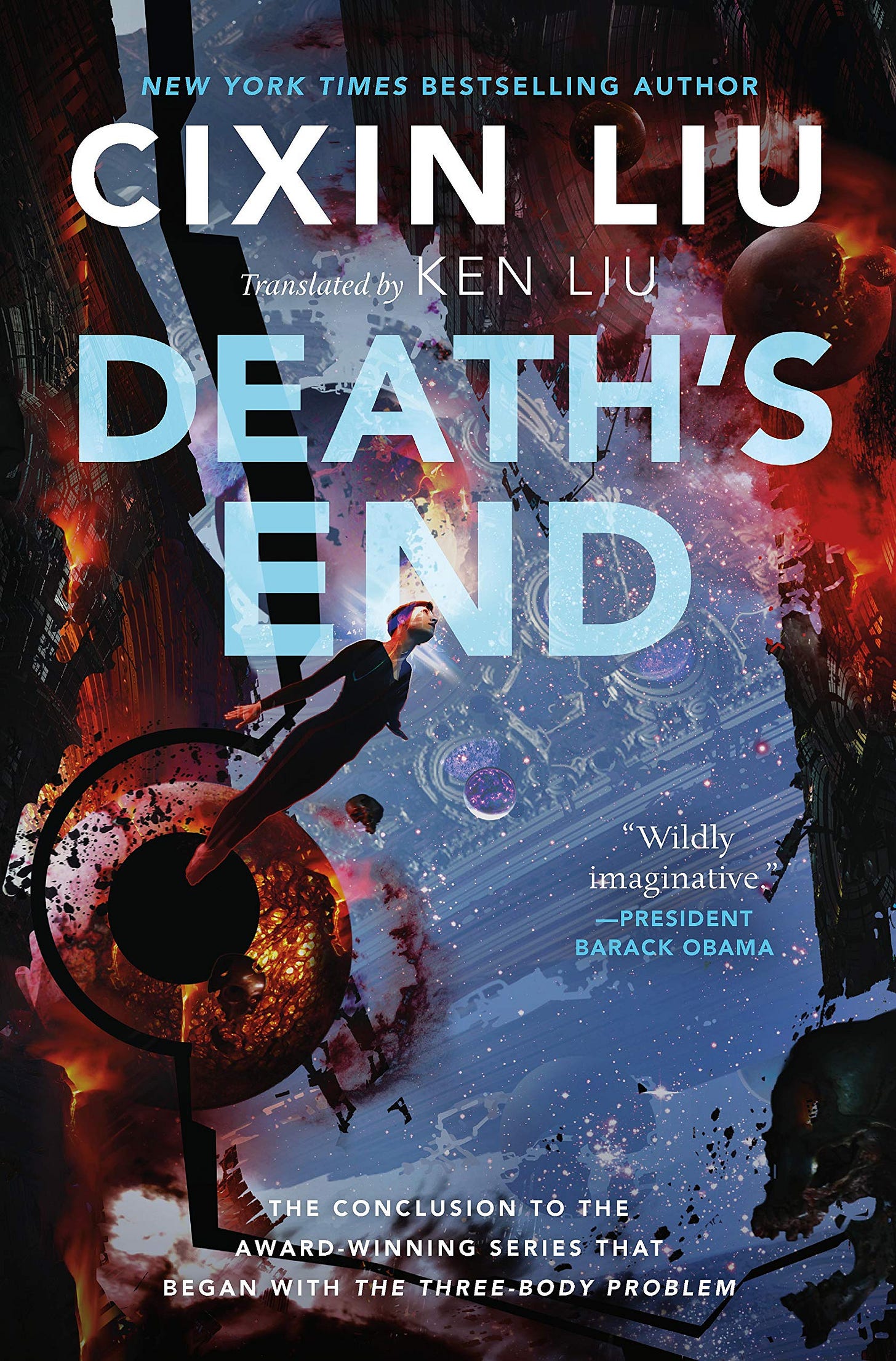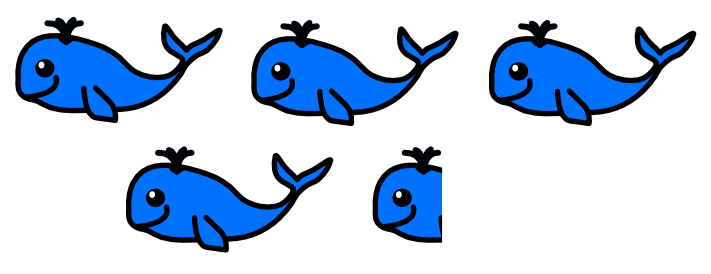Death's End
A Review of the novel by Cixin Liu
I know it’s not useful to review just the third book in a series on this blog, but to review the other ones as well I would have to go back and reread them, and I have no desire to do that. This trilogy is an experience but the writing is dense.
I actually listened to the audiobook of Death’s End by Cixin Liu. I tend to listen to audiobooks when there is a book that I want to read but have been struggling to get into (I’ve checked this book out from the library three times and gotten 50 pages in twice). The audiobook is long and there were times the audiobook would be playing and my brain would refuse to process the mess of nonsense science in the book. The writing is intense — it’s like Cixin Lui read every physics paper and used it as material in his novels.
Cixin Liu’s books are very similar to Andy Weir’s books except they aren’t funny. They are witty and the irony made me chuckle and I think I guffawed at least once, but the characters aren’t charismatic. Instead the characters are vehicles for plot. And the plot is science.
The main character, Cheng Xin, is a brilliant physicist who begins the story as a part of a group of researchers who are trying to save humanity from the Trisolans (an alien race introduced in Book 1) before the Dark Forest plan (literally, the name of Book 2) is implemented. She is placed into hibernation and awakens years later during the Dark Forest era.
The book heavily relies on hibernation; the concept that a body can be put to sleep indefinitely and awakened at another point in time. Hibernation is based on the idea that future science will be sophisticated enough to cure any modern diseases and revive someone to health. This is perhaps the science concept in the book that is the least well explained. However, it is the method in which the reader can see the future of humanity through Cheng Xin’s experiences.
Cheng Xin lives eons and she has more plot armor than Harry Potter. Through her life we get to explore concepts like speed of light and multi-dimensional warfare. Cheng Xin is the reason that the reader cares about what is happening to the universe. Cixin Liu has a way of writing that makes Astrophysics exciting by putting his characters at the center of the drama.
Instead of just using science based writing prompts, like Andy Weir (see my Artemis review), Cixin Liu also incorporates psychology based prompts. Liu explores human behavior in times of extreme stress. The main ethical question that is brought up over and over again is a variation on whether it is okay to sacrifice a few to save many. In Death’s End the question is: should we sacrifice many to save some?
When faced with moral dilemmas such as these, the character’s in Death’s End behave, unexpectedly, badly. Cixin Liu does not paint humans as moralists but instead as strategists and chess players, tactically, fighting for survival.
I think one needs to like science more than the average person to enjoy these books. For those who do like science, there is a catch. If you’re one of those readers who likes to triple check every factoid in a book, you will find this series exhausting. It is well researched, but it is still speculative fiction. The science is there to communicate a narrative and there is A LOT of it.
The whole trilogy was well written and the concepts are sophisticated and well thought out. I learned things and was forced to think deeply and existentially. Also, it has one of the best nested stories in a novel that I’ve ever read.
The Don’t Call Me Ishmael Official Book Rating, Sponsored by the Dark Kelp Forest Society (DKFS):
4.5/5. Way better than Moby Dick.



